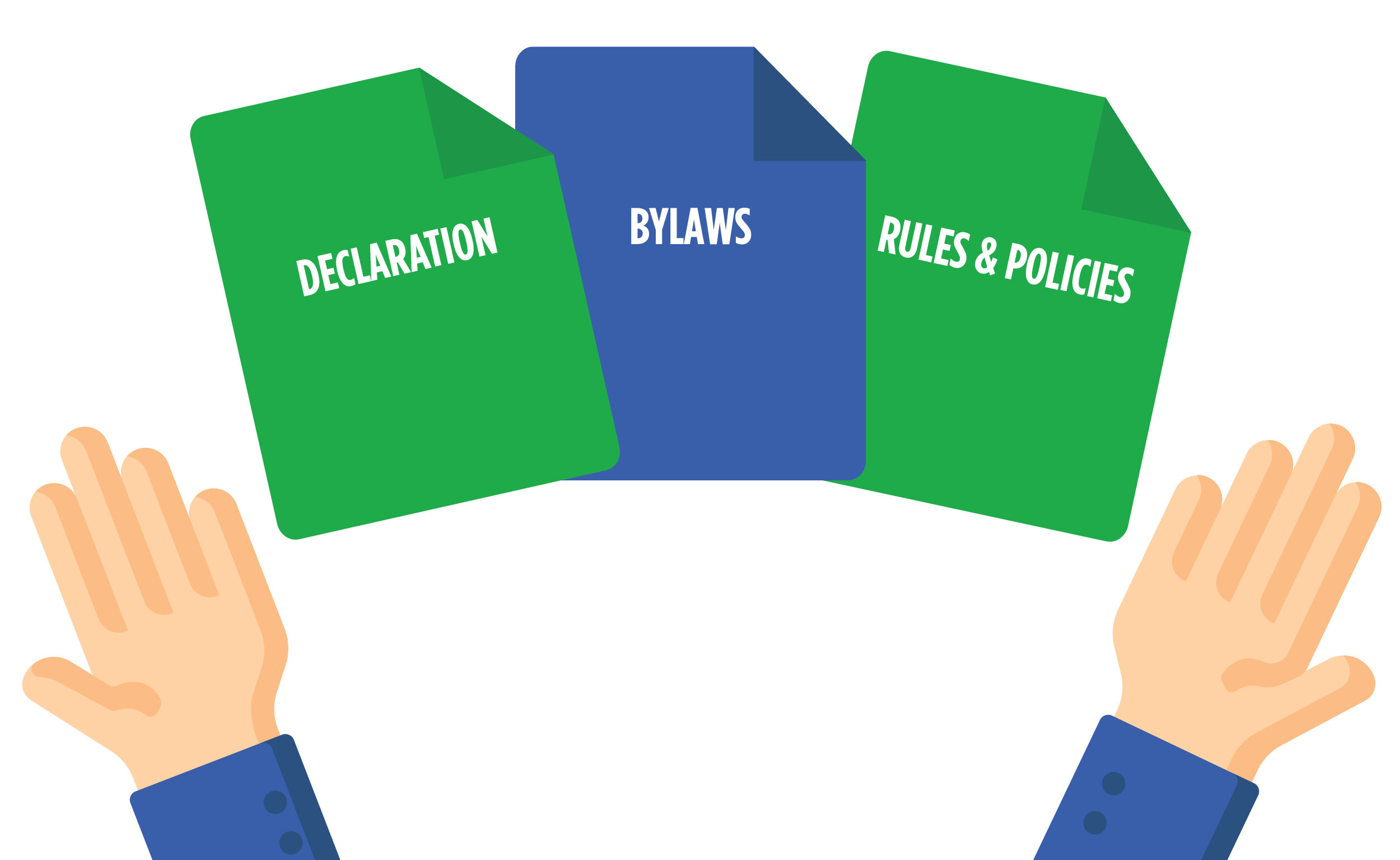Condominium managers encounter a variety of different types of owners: some are experienced owners who understand their rights and responsibilities, while others are first-time owners who are eager to learn. However, all too often managers encounter owners who own a unit, but don’t understand what additional responsibilities this entails.
This guide is for the owners who regardless of background, want to be Savvy Owners.
Understand the key documents: Declaration, Bylaws, Rules, and Policies.
These documents govern life within the condominium corporation (the “corporation”), and every owner is responsible for knowing and abiding by these documents.
The Declaration is the first and foremost of these documents. It is a highly technical document, typically only read by lawyers and condominium managers. Before purchasing a unit, a Savvy Owner purchases a status certificate, and reviews the Declaration with their lawyer.
The Bylaws, of which there may be one or several, are more accessible to the non-technical reader, and govern the size and terms of the condo board, among other things. These are important documents in their own right.
The Rules and the Policies are the documents that are most germane to everyday life in the condominium. They govern a host of activities, behaviors, and uses that affect the owners day-to-day. Among these can be rules and policies regarding usage of common elements, details regarding specific charge-backs, and specific actions that must be taken or avoided in the wake of Covid-19.
A Savvy Owner should be familiar with all of these documents, but should be most familiar with the Rules and Policies.
2. Stay up to date regarding events for and announcements from the condominium corporation.
A Savvy Owner is up to date on the news in their corporation. A Savvy Owner reads the announcements posted on bulletin boards and reads the announcements posted on online communication platforms. Condo Control Central is one example of a highly rated and popular communication platform.
Condominium managers make an effort to provide key information in a variety of methods to ensure that all owners have the opportunity to stay up to date. However, no amount of outreach will be successful if the owners don’t read the announcements.
3. Understand your obligation to pay common element fees
Common element fees are perhaps the single most important obligation that owners have to the condominium corporation. It is incumbent upon the owners to make sure that their fee payment is made in full, and on time. This means that it is the owner’s responsibility to contact the corporation when they purchase a unit, and to keep the corporation updated when banking information changes. It is not the responsibility of the corporation to track new owners down, to send invoices, or to send out reminders. If payments are missed, it is the owner who is required to reach out proactively to make sure their payment is made promptly.
In fact, the condominium corporation is required to take an aggressive approach to collecting overdue common element fee payments. Corporations are required to pursue all avenues of collection and must place liens on units that are in arrears.
4. Understand that you are responsible for your tenants and guests
This comes as a surprise to some owners, but the owner of the unit is responsible for the actions of their tenants and guests. This most frequently comes to light when an owner rents their unit to a tenant, and the tenant damages the common elements of the corporation. The owner is surprised to find out that they receive the bill for the repairs, and not their tenant. A Savvy Owner knows this, and also knows that they have the option of seeking to recover costs for damages from their tenants themselves using other legal means (such as the Landlord and Tenant Board).
5. Read the Periodic Information Certificates
A condominium corporation is required, by law, to produce two Periodic Information Certificates (PICs) per year. These documents contain information of importance to owners. A Savvy Owner reviews these documents when available.
6. Attend the AGM
A Savvy Owner attends the Annual General Meeting. This meeting is an important source of information to the owner and is an opportunity for the owners to ask questions. If unable to make it to the meeting, the owner can fill out a proxy form to have their views represented.
Bonus Points:
The CAO Director’s Course
All board members are required to take the Condominium Authority of Ontario (CAO)’s Director training course. This course however is open to all owners, for free. It provides some much-needed education that all board members (and owners) can benefit from.
Attend webinars and information sessions
The Canadian Condominium Institute (CCI) is an organization devoted to providing training and education to owners, board members, and managers of condominium corporations. Owners can sign up for webinars to expand their knowledge.
As an added bonus, board members who sign up for these webinars can see the author, who is a frequent speaker and educator at these events.
Written by Michael Trendota*, RCM
Chief Operating Officer of Alwington Communities
Michael is a property management professional with experience operating a diverse set of buildings, including high-rise, low-rise, and townhouse-style. His passion is bringing neighbors together to build exciting and vibrant communities. Michael draws from his own condo board member experience to advise board members on the opportunities and challenges facing their communities. Michael holds a Masters of Business Administration from Queen’s University and is a Certified Property Manager.
* Though written by a qualified and experienced Condominium Manager, this article is not intended as legal advice. Please consult your own experts for advice.










